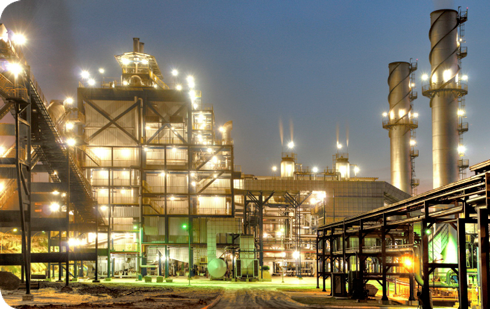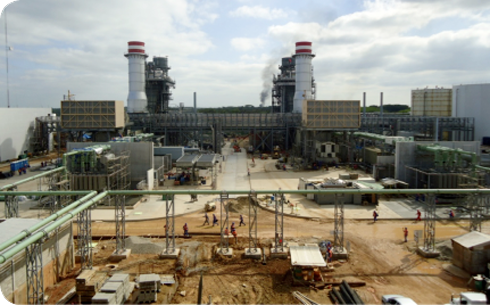 Abengoa
Abengoa
Annual Report 2012
- Activities
- Activities
- Concession-type infrastructures
- Cogeneration and other concessions
The cogeneration market in Spain is facing a difficult situation, due firstly to a slow-down in business over recent years and secondly to the enactment of the new energy reforms, which will most likely cause the market to shrink further. That said, Europe as a whole and Latin America are becoming increasingly aware of the value of efficient technologies capable of generating significant cost savings and boosting industrial competitiveness, a must in these times of crisis. Abengoa therefore expects to see large-scale development of cogeneration facilities in these regions over the coming years, especially in terms of large cogeneration facilities attached to refineries or chemical plants (heavy energy consumers).
At present, Abengoa has cogeneration plants in Spain and Mexico with an installed capacity of 400 MW, with the optimal management of these assets becoming the main mission of this business line. We might define Abengoa’s vision in this area as setting itself up as an international benchmark in managing concession-based cogeneration plants safely, reliably and efficiently.
Cogeneration generates electricity and high-temperature heat simultaneously, both of which are used in industrial processes; an energy-efficient solution being spearheaded by Abengoa. Heat and electricity are therefore generated from biomass, natural gas or industrial waste for subsequent use in industrial processes, with the surplus sold to the grid.

Abengoa has also been active in the wind power market by constructing and operating numerous wind farms in Uruguay and Brazil.
The company is also involved in concession-based custom construction projects, such as hospitals, courthouses and cultural centers.
Abengoa operates the following installations:
- Cogeneración Villaricos, S. A. (Covisa), Enernova Ayamonte, S. A. (Enernova) and Aprovechamientos Energéticos Furesa, S. A. (Aprofursa). These companies generate electrical power while using the heat to produce water or steam. The electricity is then sold, while the heat is used by the host industry.
- Procesos Ecológicos Vilches: company specializing in the recycling of livestock waste to produce fertilizer and electrical power through a purine treatment plant (pig waste, mixed excrement, urine, water, leftover animal feed and other foreign bodies), combined with an electrical power cogeneration plant.
- The Centro Cultural Mexiquense de Oriente (CCMO) cultural center, Abengoa’s first concession in Mexico. The complex, with an operational term of 20 years, sits on 17 ha of land and boasts 35,000 m² of museums, libraries, workshop modules with over 60 classrooms intended for a range of different art-related subjects, an administrative building, auditoriums, an open-air theater, a concert hall with seating for 1,200 people, a cafeteria, a restaurant and parking spaces for over 1,000 vehicles.
- Irrigation zone of the Navarra Canal. The intention with this concession is to recover investment by levying an irrigation charge.
- Cerrato hydroelectric power plant on the Pisuerga river and mini-stations along the Canal de Aragón y Cataluña irrigation canal. Toe-of-dam, run-of-river and diversion plants in northern Spain. Investment here is recovered by selling the electricity generated by the plants.
- Hospital Costa del Sol (Malaga): the contract envisages the 40-year operation of the hospital building and underground parking lot. The hospital building has a floor area of 31,200 m², while the parking lot occupies 25,500 m² (960 spaces).
- Hospital del Tajo (Aranjuez, Madrid): the contract envisions the exploitation (management and maintenance) of the hospital for a 30-year term. Gross surface area amounts to 58,000 m².
- Court buildings: Abengoa owns surface rights to construct and maintain the courthouses at Olot, Cerdanyola and Santa Coloma de Gramanet, and to operate the buildings through a lease with the regional government of Catalonia.
Upcoming concessions
In 2012, construction got under way on the El Zapotillo aqueduct (Mexico), the Peralta wind farm (Uruguay) and three wind farms in Brazil.

São Luiz cogeneration plant in Pirassununga, Brazil
Construction of the cogeneration plant in Tabasco (Mexico)
© 2012 Abengoa. All rights reserved
